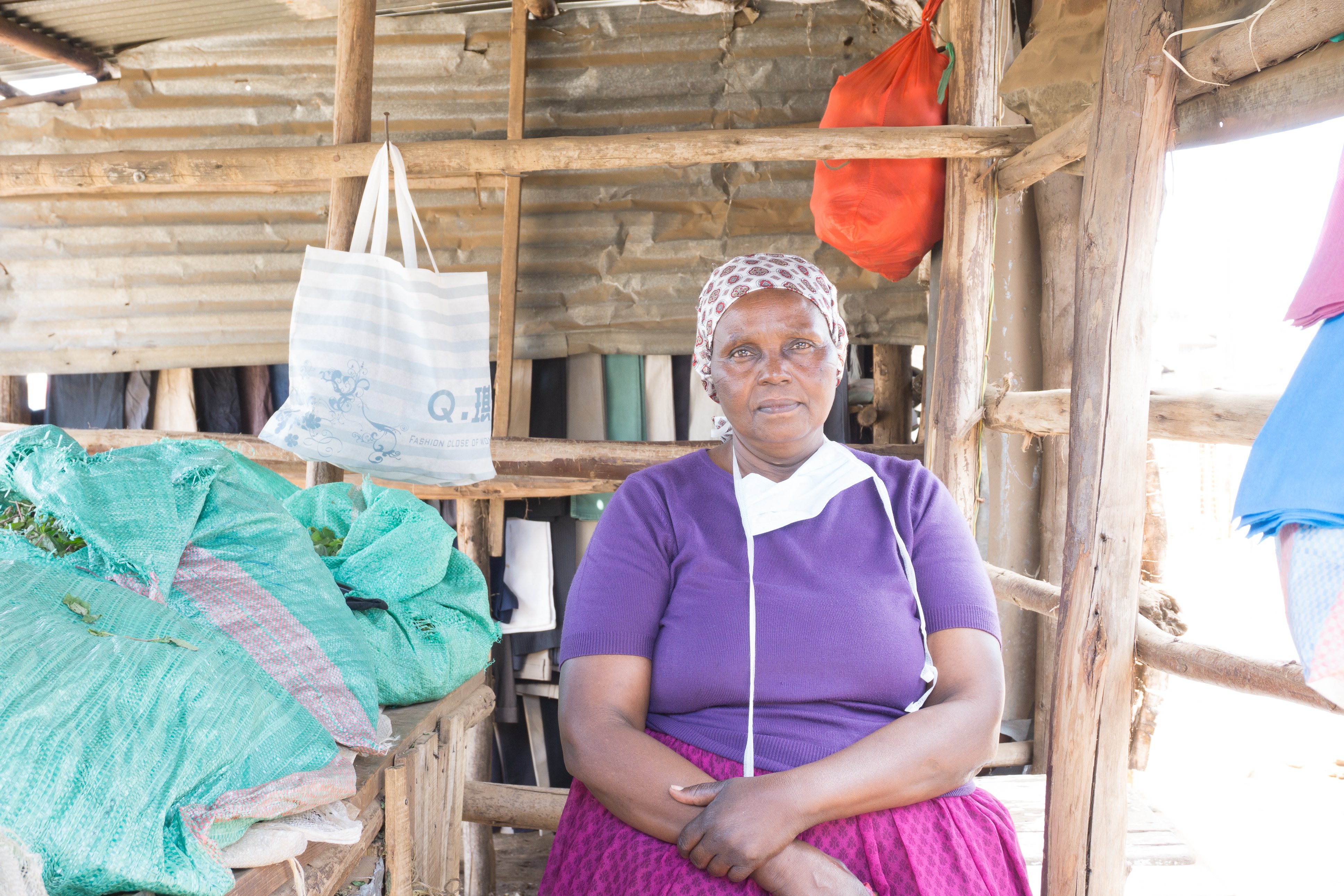Without food or money, people no longer able to make a living grapple with impossible choices. Oxfam and its partners are offering a lifeline: cash.
“I used to earn 100-200 shillings per day,” says Robina Kwamboka. “These days I get nothing.”
Kwamboka lives in the Nairobi settlement of Kibera, a COVID-19 hotspot, where policies aimed at keeping communities safe from the deadly coronavirus have put people at risk of hunger and homelessness. She is 60 years old and used to support a family of five buying cabbages from traders and selling them to construction workers. Now prices are high, her customers are jobless, and the result is predictable and harsh: “We have no money.”
Priscilla Ngilla—also from Kibera, and the mother of two young children—has a similar story to tell. She lost her jobs cleaning schools and washing laundry, and had to cut back her family’s meals to one a day. Once, she says, they went for two days without a meal.
The bigger picture is equally grim: a recent survey showed that in April at least a third of Kenyan households were unable to make the rent. An assessment of Kibera and nearby informal settlements revealed that fewer than a quarter of households include a steady income earner, and—alarmingly—nearly one in three families is experiencing severe hunger.
It’s been almost three months since the Kenyan government enacted a nationwide curfew, and restrictions limiting movement in and out of several major Kenyan counties. Since then, countless domestic workers, cleaners, beauticians, street vendors, and others in the informal sector—people who lack unemployment and social security benefits—have lost their sources of income.
Families struggling through this emergency need money. It’s as simple as that.
So, in April Oxfam joined forces with a coalition of other humanitarian organizations to pilot a cash-distribution project in Kibera, funded by the European Union. We identified some of the most vulnerable residents—including people who are elderly, disabled, and chronically ill; orphans; and pregnant and lactating women—and on April 30 began issuing payments of around 5,600 Kenyan shillings (USD 52; EURO 46) to more than 1,500 households (6,000 people)—a sum that can cover 50% of a person’s food needs, as well as other expenses like soap, water, rent, and mobile phone credit, for a month. Electronic fund transfers via mobile phones helped keep the process quick, convenient, and secure.

Why cash instead of food? Some families have other pressing needs, like medicine or rent; providing cash rather than food offers them maximum flexibility to tend to what’s most urgent. Another reason cash is a better option is that families like and deserve to make their own choices around what they buy. And finally, enabling people to shop is good for the local economy—and for vendors like Kamboka herself.
When Kwamboka and Ngilla received their payments, they settled their debts to people who’ve been helping them feed their families and pay the rent, and bought the food they needed. “If you hadn’t sent me that money, I wouldn’t be here,” says Ngilla, who had a close brush with homelessness. “It has helped me a lot.”
Now that the pilot is complete, Oxfam and our partners are ready to launch a cash program in ten informal settlements that will reach 20,000 families (80,000 people) that have lost their incomes in the COVID-19 crisis. Each will receive three payments of 5,700-7,700 shillings (USD 53-72; EUR 48-65) over the course of three months. And Kwamboka and Ngilla will be included.
“For day laborers, it is difficult and dangerous to try and make a living now, but if they stay home, their families go without food,” says Matthew Cousins, Oxfam’s humanitarian director in Kenya. Right now, he says, “cash can save lives.”
Oxfam is mobilizing to prevent the spread of coronavirus and to save lives in vulnerable communities around the world. Working closely with our local partner organizations, we are delivering clean water, sanitation, and public health promotion programs; supporting food security; and getting cash to many of those in greatest need. In Kenya, provided we can raise the funds we need, we will reach 500,000 people in vulnerable urban and rural areas with programs aimed at reducing transmission of the virus and easing the suffering this crisis is triggering in hard-hit areas.
This story was produced with the financial support of the European Union. Its contents are the sole responsibility of Oxfam and do not necessarily reflect the views of the European Union.

